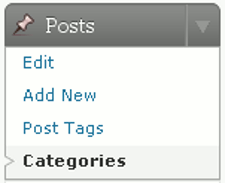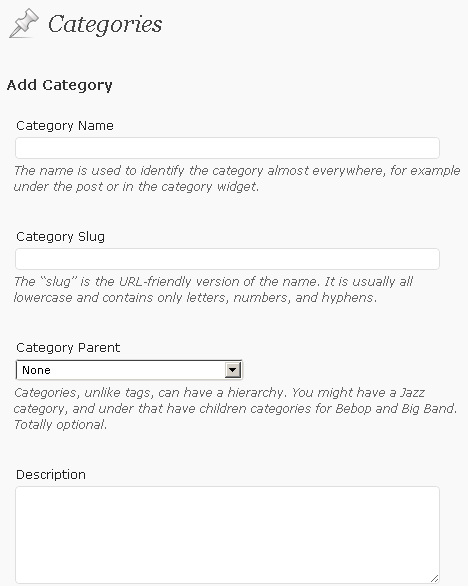
SEO: It is the art and science of getting your website listed in search engine results for more search terms and listed higher than all the others. This is a pretty important factor to website success … and business success. So, it would seem tragic if you had done almost all the right things, but then you just forgot some of the basics.
Nobody is perfect. We all forget things. I want to give you a reminder of something that I frequently find overlooked by WordPress blog owners when they set up a new blog, and as the blog grows. The basic principle can apply to any website, really. The little things really do add up, and this is a quick SEO tip that you can use to improve your SEO so fast that you may wonder why you ever neglected it.
WordPress Category Descriptions
Sure, you have set up your categories, and you may add to them now and then. Blogs change over time, and so their focus changes. Categorizing your content is important, and so you probably did not forget that part. What I find that a lot of people do forget is to optimize WordPress category descriptions to match their content.
WordPress categories are a way to make it easier for people to find more information on the same topic. They also help search engines to better index your blog. It only makes good sense to have your category descriptions reflect the content of that category correctly, and keep it up to date.
The category description is where WordPress gets the page description for category pages to include in the meta description. If you do not have a description, or it is an old description that does not reflect changes to your blog and to the state of that category, your blog is missing an important element.
Using “Noindex, Follow” in WordPress Category Pages
You may say, “but I have a noindex, follow meta tag in my categories.” This is good, and I do, too. I use “All in One SEO Pack“, and I recommend it to others. It allows easy management of meta indexing directives.
I do not want search engines to index my categories, but I want them to know exactly what the categories are about and then follow the category page links to my article pages. It makes sense that I should give them a good meta description.
It may seem trivial, but when you consider it, many of the things we do to optimize our websites for search engine ranking really are just little pieces. Those little pieces add up to be one big picture, and until you get them all together, the puzzle is still not complete.
Managing WordPress Category Descriptions
Just to be sure I did not give you a great idea and motivate you to take action, but not follow through with a “how to”, I will tell you a couple of tips on where to go and do this, and also what to include.
First, for anybody unfamiliar with where to edit WordPress categories. Depending on the version of WordPress you are using, you will find it in your blog administration either under “Posts” and then “Categories” or under “Manage” and then “Categories”. From there, you will see all of your categories listed. Simply click on a category name and add or modify the description. I would not suggest changing the “slug”, because it would change the URL and upset your internal link structure and search engines would have to learn it all over again.

Now that you are ready to edit your blog categories, try to create a description that reflects the emphasis of the category, and how it relates to the overall content of the site. As an example, my “Internet Marketing” category description reads as follows:
As you can see here, it reflects the blog category, but it also reflects how it relates to the overall subject of the blog.
I hope you have found this to be useful. It is sometimes easy to forget the little steps, but they all matter.
For more useful WordPress-specific tips and tricks, I recommend my friend, Ruhani Rabin‘s blog. Here is a link directly to his WordPress category where he has a lot of useful articles about tweaking WordPress blogs.
Podcast: Play in new window | Download